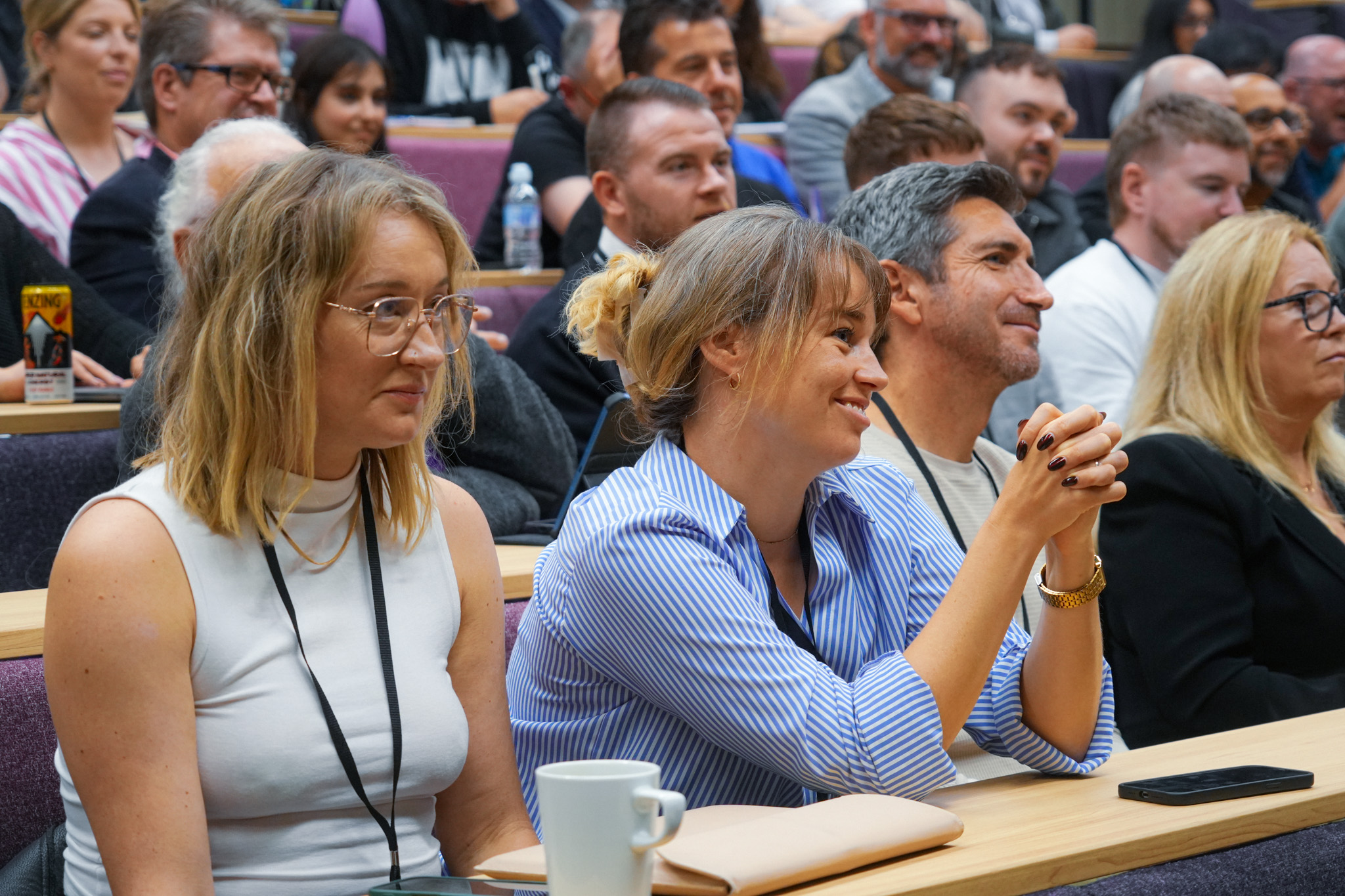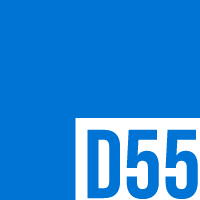
Last week, Manchester Digital debuted its newly-titled event MD Future Live 25, in partnership with Kao Data and Sister. The full-day conference featured a fast-paced programme of talks and panels, with keynotes from global brands and the region’s most exciting startups, covering AI, the infrastructure that powers it, quantum readiness and the skills to make it work.
MD Future Live was delivered in partnership with:
Here’s our round up of the day’s talks and panel sessions:
The UK’s Role in the AI Race: Arm’s Global Platform, Manchester’s Local Strength
Geraint North, Fellow AI & Developer Platforms, Arm
Geraint introduced Arm, a global technology company that employs around 500 people in Manchester and has recently moved into larger office space near Albert Square. The company develops a broad range of technology for the semiconductor markets, including CPUs for general-purpose computing and GPUs for graphics. Arm licenses these technologies to semiconductor partners, such as Nvidia, who integrate them into silicon chips.
As Geraint noted, “It’s hard to find a chip that doesn’t use some aspect of our technology, and the work starts long before products make their way into your hands; the processors going into today’s mobile phones are the result of development work we began over five years ago.”
He said, “Our two goals in Manchester are firstly to find collaborators who can show us great examples of how our technology in the real world, and secondly to grow the ecosystem of talent within the region, ensuring that it is a place where people can spend the entirety of their technical career.”
 Geraint North, Arm
Geraint North, Arm
AI Advantage: What the UK’s Sectors can lead the world In
Chair: Dr. Vikas Shah MBE DL
Panel: Rob Wilson, CEO at Imperagen; Ben Davies, Marketing Director at Praetura Ventures and Katharina Reusch, Senior Manager at Capgemini
With £1bn pledged to boost the UK’s AI capability, the panel looked at the verticals and strengths where our region can outcompete on a global stage. Our panel host Vikas asked why would people invest in Manchester, and asked what are we really good at here?
Ben stated that there more than 80% of UK VCs are based in London, but only 7% in the North. However, 20% of the GDP is from the North, compared to 22% from London - so really there should be a lot more VCs up here. He also added that the startups and scaleups basing themselves up North really benefitted from cheaper bottom line costs and access to incredible talent.
Rob, who previously worked in Singapore and the San Francisco Bay area, said that he found that there’s real strength in the talent pool here, although Manchester still feels like a nascent tech economy. In comparison, he found that the Singapore government was more actively supportive of business and that the Bay Area felt like there was a lot of cross-fertilisation of people and ideas, from a more mobile talent pool.
Katharina added that there is a current talent shortage that as a country we need to look at as generative AI is moving so quickly.
 L-R: Rob Wilson, Ben Davies, Katharina Reusch, Dr Vikas Shah MBE DL
L-R: Rob Wilson, Ben Davies, Katharina Reusch, Dr Vikas Shah MBE DL
Are we the last programmers? AI and the future of code
Matt Squire, Co-founder & CTO at Fuzzy Labs
Matt gave a thoroughly thought-provoking and nostalgia-tinged talk, highlighting how his love of the Commodore Amiga 500 helped develop his love for programming. He then posed the very timely question: “This is a very interesting time in the industry, as now non-coders are able to code. But what does that mean for us who have learned the craft of programming and enjoy it?”
Matt described the work of South African born American mathematician Seymour Papert, who said that learning happens when children can build things that they care about and share them. His vision was that computing was for everyone.
Matt’s conclusion to his initially posed question was, “Right now is the best time to be a programmer. The most talented programmes have one thing in common is curiosity - we still need to know how it works.”
 Matt Squire, Fuzzy Labs
Matt Squire, Fuzzy Labs
Powering the Future panel
Chair: Lynsey Buckingham, Head of Marketing, London Internet Exchange(LINX)
Panel: Lee Stretton, CTO, UrbanChain, Shaun Fensom, Co-Founder, Cooperative Network Infrastructure (CNI) and John Duncan, Connected Places Lead, GMCA
This panel explored how we build infrastructure that can support the next wave of technologies and asks: how can the UK can prepare for future demand across compute, energy and connectivity?
John explained that in Greater Manchester, we have a pipeline of £1bn investment coming in, which includes Kao Data’s £350m investment in building their first data centre outside London. He added, “In our region, we have the right infrastructure to build an AI economy, which includes the available land, the transatlantic data cables, the tech pool of talent and power connections.”
Shaun added, “We need to build data centre capacity nearer to renewable sources of power, and also take advantage of the excess heat produced by data centres to channel into areas of heat poverty. There is a tremendous opportunity here in the North West.”
In terms of futureproofing infrastructure, John summed up the panel’s thoughts when he said: “We need to urgently get the national grid and connectivity sorted. We also need support for planning teams as we no longer have the capacity for decision-making to deliver all this infrastructure.”
Lee added, “We need to move faster with planning - we’re building demand for now, not for the future.”
 L-R Shaun Fensom, Lee Stretton, John Duncan, Lynsey Buckingham
L-R Shaun Fensom, Lee Stretton, John Duncan, Lynsey Buckingham
From Smartphone to Spaceship: BodyMirror and the Future of Brain Health
Dr. Zied Tayeb, Founder & CEO
Zied introduced his hugely innovative startup MyelinZ®, which is launching its first product onto the market this week. Body Mirror is a non-invasive, portable brain machine interface platform, powered by neuroscience, AI and innovative gaming to remotely monitor and improve brain health. It uses games to stimulate your brain non-invasively, using neuroplasticity to rewire the brain, without medicine or pills, and can be used for both physical conditions and neurological conditions.
The concept was created when Zied’s mother was diagnosed with MS, which sparked his interest in using tech to help people with neurological conditions, which then led to him becoming the youngest neurotech professor at the age of 28. He has also done a PhD in Neurotechnology and for the past 10 years has worked in the UK, Germany, the US and Singapore.
Zied has just moved his business from the US back to Manchester. They have currently raised £2m in seed funding and partners include UCSD, NYU Langone, Stanford, Mayo and Einstein hospitals. They are currently raising a £6m seed round which is 60% committed. The startup is also launching clinical trials very soon, with 400 patients, including Zied’s mother.
He also described how they’ve already expanded into the space arena, working with NASA, Axiom Space and Virgin Galactic. Myelin Space is a neurotech for recovery and readiness clinical research in space. Microgravity acts as a natural simulator and accelerator of cognitive impairments, making space a powerful testbed for monitoring and digital therapeutic capabilities.
 Dr. Zied Tayeb, MyelinZ®
Dr. Zied Tayeb, MyelinZ®
The Future of AI Agents and Agentic AI
Panel: Rebecca Fox, Founder at Relentica; Alan Reed, Head of Platform Innovation, bet365; Lee Noble, Head of Digital, Peak.ai, Phil Birchenall, Founder, Diagonal Thinking
AI agents are moving beyond simple task automation towards systems that can plan, adapt and act independently. This panel session explored how agentic AI is being deployed in real-world applications, the tools making it possible, and the challenges of keeping these systems safe, useful, and aligned with intent.
Lee said: “People are using generative AI to write docs but is that it? Realistically what will happen is that businesses will look at agentic AI to pull us out of that trough of disillusionment. This is where we move away from hype into realism - from thinking what manual things can be changed by automation but rather thinking, what are the decisions that I have to make and where can I use agents (with guardrails) to make those decisions for me.”
Rebecca added, “AI has already transformed our working lives. What we need to focus on is that we want AI to do our work, but not our jobs.”
Alan explained, “The biggest problem with using generative AI within businesses is that LLM has read the whole internet but doesn’t know anything about you, processes or businesses. We forget there’s a due diligence process to be done as well.”
Phil added, “In the last ONS report before summer, it found that only one in five businesses from June 2025 were using AI right now. This shows we have a long way to go. Currently most companies are very behind the curve.”
 L-R Lee Noble, Alan Reed, Phil Birchenall, Rebecca Fox, Morgan Lewis
L-R Lee Noble, Alan Reed, Phil Birchenall, Rebecca Fox, Morgan Lewis
Who’s Hiring, Who’s Rewiring?
Chair: Jack Stockport, Co-Founder & Technology Business Manager, SF Technology
Panel: Paul Cartwright, Head of Service Management, MONY Group; Sara Simeone, CEO, NoCodeLab.ai; Elaine Higgins, Chief People Officer, Robiquity and Richard Whittle, Research Fellow, University of Salford.
As automation, low-code platforms and new tooling change how software is built, the skills and structures of tech teams are shifting fast. This session looks at how job roles are being rewritten and what it means for hiring, reskilling and the future shape of digital teams.
Paul said: “I rolled out Teams across the MONY Group in 2017, but we saw widespread adoption over the pandemic. From September, we started to roll out Copilot and we now have an expectation that people will use these tools. In order to do this, we have trained everyone in our company to use AI.”
Richard said there was still some fear around AI and that we need to ensure there’s still a pipeline of graduate entry level jobs so that we don’t have a huge gap of knowledge in the talent pipeline, further down the line.
Elaine elaborated on the skillsets coming out of university now will have to change - young people coming into the workforce now need to have the technical skills, but also the critical thinking skills too - they need a blended approach.
Sara said: “We’re a startup with two people, and since May we’ve trained 500 businesses in AI. We’ve scaled very quickly thanks to an automation tool that I built myself, which enables us to hire in a very agile way.”
 L-R: Paul Cartwright, Sara Simeone, Elaine Higgins, Richard Whittle, Jack Stockport
L-R: Paul Cartwright, Sara Simeone, Elaine Higgins, Richard Whittle, Jack Stockport
Applying AI to the world’s most comprehensive health dataset
Mark Conway, CTO, UK Biobank
Last up on the agenda for Future Live 25, was Mark Conway, the new CTO at UK Biobank. Mark talked through the phenomenal amount of work that BioBank has done to create usable bio data for medical research.
Between 2006 and 2010, half a million people between 40 and 69 agreed to make their health-related data available for research. Since then their samples have undergone whole genome sequencing and tests for many other biomarkers, including the world’s largest proteomics dataset. Over 100,000 have participated in brain, heart and body MRI scans..
Mark explained, “Most healthcare research is about finding patterns, the mapping between genetic markers and how to relate to health outcomes and disease.
Now AI is being applied to this to get better outcomes.”
Some of the case studies of this amazing use of AI includes:
- AstraZenca created a ML model called Milton, predicting future disease from clinical and biomarker data
- Enabling us to understand brain, heart and MRI images in much greater depth.
- A study showed that Covid-19 is associated with decreased cognitive decline
- Generative 3D models of the heart to create digital twins
- Analyzing bone dimensions and density of 100,000 people
We’d like to say a huge thanks to our event sponsors, Kao Data and Sister, for supporting Future Live 25.

Our next events:
Scale Up Sessions
Join us for Scale Up Sessions: In conversation with Cadro and the CEO of Travel Counsellors on 30th September.
Digital Her breakfast
Join us for the Digital Her networking Breakfast with Lloyds Banking Group, on 8th Oct, 9am-12.3 pm.









